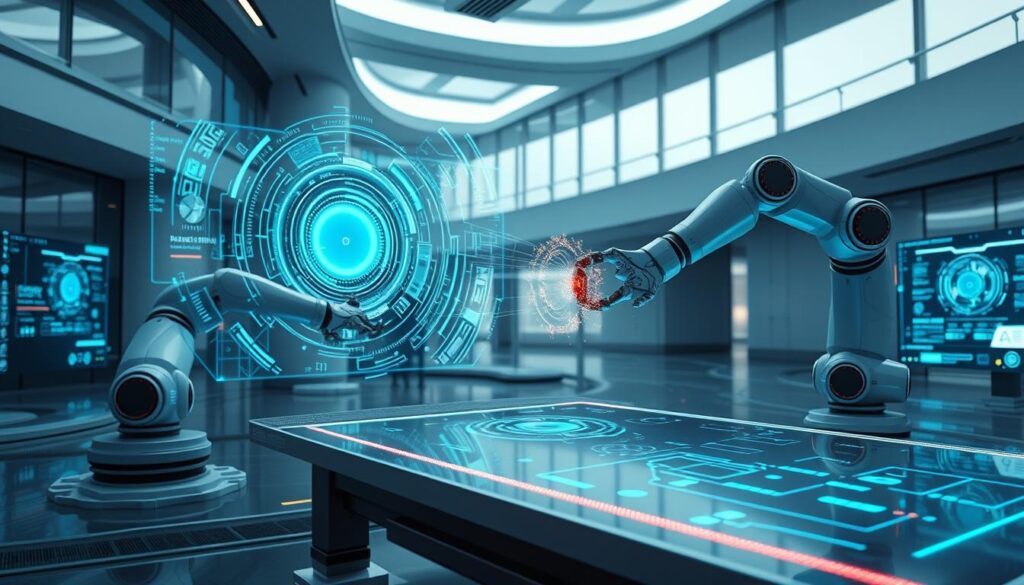Introduction
In today’s digital era, journalism has become a battlefield of speed, technology, and influence. Artificial intelligence, political agendas, and celebrity culture now shape how stories are told and consumed worldwide. The line between truth and narrative is constantly redrawn by algorithms and social media.
As audiences demand faster updates and more personalized content, news organizations must adapt to survive. This transformation is not just about information—it’s about power, credibility, and the very fabric of democracy in a connected world.
AI’s Impact on Modern Newsrooms
AI is now an indispensable ally in journalism, streamlining fact-checking, automating article writing, and analyzing global data trends. From detecting misinformation to generating live updates, AI enables journalists to focus on investigation and storytelling.
However, this reliance on automation raises ethical questions. When machines generate headlines and summaries, the risk of bias and manipulation increases, challenging the integrity of human-led reporting. The future of journalism depends on how responsibly this technology is used.
The Political Power of Digital Media
Politics and media have always been intertwined, but the digital age has made their relationship more immediate and intense. Politicians use social platforms to communicate directly with the public, bypassing traditional press filters.
This democratization of communication allows transparency but also opens doors to misinformation and propaganda. Media outlets now find themselves not just reporting politics—but actively shaping it.
Celebrities as Modern News Influencers
Celebrities have emerged as powerful voices in shaping news narratives. Their opinions on global issues often spark public debate faster than official statements or expert analyses. Platforms like X (formerly Twitter) and Instagram have turned entertainers into global commentators.
From humanitarian causes to political movements, celebrity statements can amplify awareness or fuel controversy. Their influence demonstrates how fame and information have merged into a single ecosystem of cultural authority.
Global Journalism in the Era of Disinformation
Disinformation has become one of journalism’s greatest challenges. AI-generated deepfakes, fabricated reports, and bot-driven campaigns blur the boundaries between fact and fiction.
Media organizations now invest heavily in verification technology, while audiences are urged to question every source. The fight for credibility defines the new age of journalism—a battle for truth in a world flooded with data.
Technology and the Rise of Independent Media
The internet has empowered independent journalists and small outlets to reach global audiences without traditional media infrastructure. Through AI-driven analytics, even small teams can target niche demographics and deliver customized stories.
This decentralization of media has encouraged diversity of voices but also fragmented audiences. As independent platforms rise, the challenge is to maintain journalistic standards while preserving creative freedom.
The Future of News Consumption
AI personalization means every reader now experiences a different version of reality. News algorithms tailor content to preferences, creating echo chambers that reinforce beliefs rather than challenge them.
To preserve democracy, the media industry must balance innovation with accountability. The future of journalism lies in transparency, ethical AI use, and collaboration between humans and technology.
FAQs
How is AI changing journalism?
AI automates reporting, aids in data analysis, and helps detect misinformation, but also risks introducing algorithmic bias.
Why is politics deeply linked with digital media?
Digital platforms allow politicians to shape narratives directly, influencing public opinion without editorial mediation.
How do celebrities influence the news?
Their global reach amplifies causes and shapes discussions, merging entertainment with political and cultural awareness.
What is the biggest challenge for journalism today?
Fighting misinformation and maintaining public trust amid algorithmic manipulation and online propaganda.
Will AI replace human journalists?
AI will assist but not replace journalists, as human judgment and ethical reasoning remain irreplaceable.
Conclusion
The convergence of AI, politics, and celebrity culture has created a new kind of global journalism—faster, louder, and more influential than ever before. Technology amplifies both truth and deception, leaving humanity to decide how to use it.
If balanced wisely, this alliance between machine precision and human conscience could lead to a renaissance in news integrity. The future of journalism depends on using technology not just to inform—but to enlighten the world.







